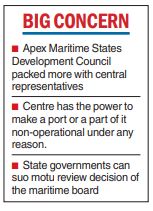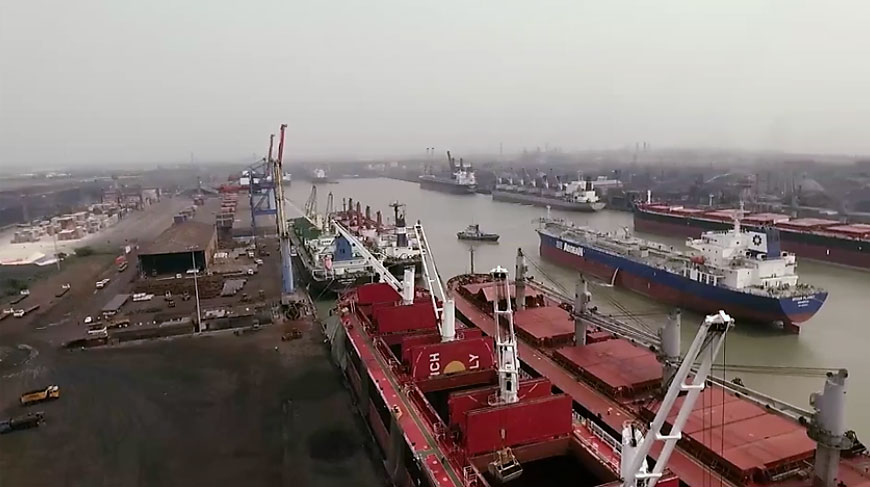The revised Indian Ports Bill, 2022 has not addressed the concerns about the Centre usurping the powers of the states, while adding stringent measures such as the powers to make a port or part of it non-operational, analysts said.
States had opposed the earlier version of the bill because the provisions relegated them into a secondary position. But the latest draft does not seem to address the issues raised by them.
The Centre has sought comments on the draft bill till August 30. The bill itself seeks to replace the archaic Indian Ports Act, 1908. Analysts said the composition of the apex Maritime States Development Council appears to be heavily loaded in favour of the Centre.
Alifya Vora, legal expert, said: “The Indian Port Bill, 2021 was faced with backlash from the coastal states due to the power and constitution of Maritime States Development Council (MSDC). In the 2022 version of the bill, although the constitution remains unchanged, ostensibly to make the bill more palatable to the state governments, it has been specified that the MSDC shall discharge its functions in consultation with both central and state governments. The Bill also states that the national plan formulated by the MSDC is a “recommendatory framework”.
Vora said changes have been made in the powers of the government to make a port or part thereof non-operational.

Under the 2021 draft, the government could make a port or part thereof non-operational if it was not in consonance with the national plan. Under the 2022 version since the national plan has been re-imagined as a mere recommendatory framework, the government has been empowered to make any port or part thereof non-operational for any other reason it deems fit.
“Such a provision provides an unbridled power to the government and does have some potential for misuse,” Vora said. Significant changes have been made in the dispute resolution mechanism.
Under the 2021 Bill, any decision of the State Maritime Board can be challenged at the appellate tribunal. However, state governments have now the power to suo moto review any decision of the state maritime board. “Such a power adds an executive layer to an otherwise judicial process,” she added.
The provisions relating to the safety and security of ports have been deleted in their entirety.











